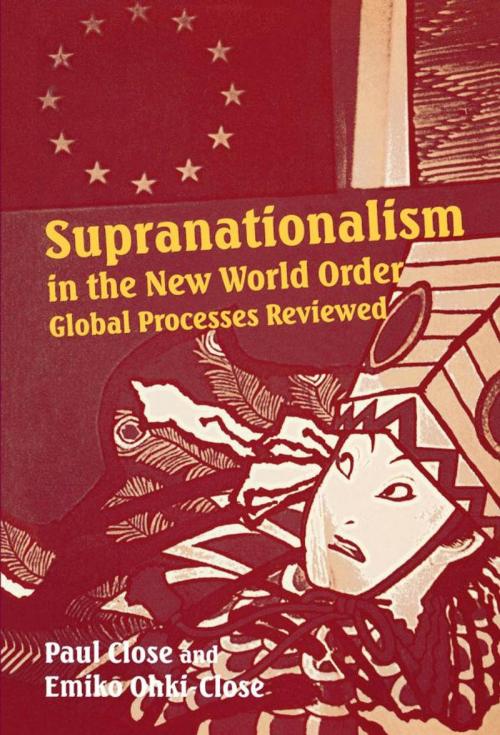Supranationalism in the New World Order
Global Processes Reviewed
Nonfiction, Social & Cultural Studies, Political Science, International, International Relations| Author: | Paul Close, Emiko Ohki-Close | ISBN: | 9781461734000 |
| Publisher: | Rowman & Littlefield Publishers | Publication: | March 25, 1999 |
| Imprint: | Rowman & Littlefield Publishers | Language: | English |
| Author: | Paul Close, Emiko Ohki-Close |
| ISBN: | 9781461734000 |
| Publisher: | Rowman & Littlefield Publishers |
| Publication: | March 25, 1999 |
| Imprint: | Rowman & Littlefield Publishers |
| Language: | English |
Supranationalism in the New World Order argues that in the post-Cold War distribution of global power and configuration of global players, the European Union is just one among a growing number of regional regimes that are acquiring prominent roles in the process of global governance, to some extent through the operation of differentiated zones of geo-political management. The EU is currently the most advanced and influential example of a regional regime by virtue of having the novel European Community at its core—the EC uniquely being constructed around supranational institutions, decision-making, and laws. But the EU's uniqueness is unlikely to last. The evident competitive advantages of supranational regional regimes, in conjunction with the realism generally adopted by the various global players, is conducive to the consolidation and proliferation of SRRs in a manner consistent with the neo-functionalist perspective on the progress of the EU. Other prospective SRRs include the Association of Southeast Asian Nations, the East Asian Economic Caucus, the South Asian Society for Regional Cooperation, the North American Free Trade Area, and the Andean Community. It is argued that the emerging character of the global system will increasingly depend on SRRs, the relationships among such organizations, and, accordingly, the doctrine of supranationalism.
The book offers a distinctive way of representing the global system, global processes, and global developments with the help of a set of freshly articulated concepts. The result is a novel, but highly contentious, treatise.
Supranationalism in the New World Order argues that in the post-Cold War distribution of global power and configuration of global players, the European Union is just one among a growing number of regional regimes that are acquiring prominent roles in the process of global governance, to some extent through the operation of differentiated zones of geo-political management. The EU is currently the most advanced and influential example of a regional regime by virtue of having the novel European Community at its core—the EC uniquely being constructed around supranational institutions, decision-making, and laws. But the EU's uniqueness is unlikely to last. The evident competitive advantages of supranational regional regimes, in conjunction with the realism generally adopted by the various global players, is conducive to the consolidation and proliferation of SRRs in a manner consistent with the neo-functionalist perspective on the progress of the EU. Other prospective SRRs include the Association of Southeast Asian Nations, the East Asian Economic Caucus, the South Asian Society for Regional Cooperation, the North American Free Trade Area, and the Andean Community. It is argued that the emerging character of the global system will increasingly depend on SRRs, the relationships among such organizations, and, accordingly, the doctrine of supranationalism.
The book offers a distinctive way of representing the global system, global processes, and global developments with the help of a set of freshly articulated concepts. The result is a novel, but highly contentious, treatise.















